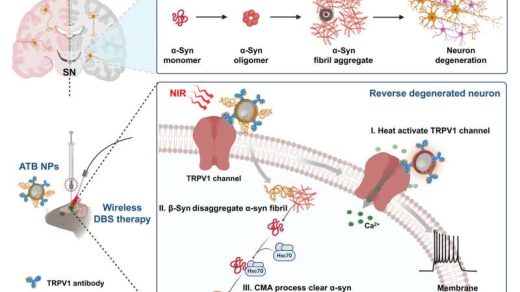
In a groundbreaking initiative, the North-East has become the focal point for an innovative trial exploring the potential of virtual reality (VR) to alleviate symptoms of Parkinson’s Disease. Spearheaded by Keith Wilson, a determined individual diagnosed with Parkinson’s in early 2020, the trial has already begun to show promising results, transforming despair into hope for participants like Mark Jarema. Wilson, after experiencing the personal benefits of VR, initiated this project by crowdfunding £4,500 to purchase VR headsets and facilitate VR classes for Parkinson’s patients, under the guidance of wellbeing coach Victoria McFaull.
From Concept to Reality: Building the VR Trial
Wilson’s journey from diagnosis to trailblazer began after his own diagnosis in March 2020, when he stumbled upon the therapeutic potential of VR. Determined to extend this opportunity to others, he embarked on a fundraising mission, which culminated in the launch of VR classes designed specifically for Parkinson’s patients. These classes, led by Victoria McFaull, incorporate a variety of activities, ranging from flying paper airplanes to playing table tennis, and even dancing, all within a captivating virtual environment. The trial, supported by Parkinson’s UK, marks a significant step towards innovative treatment approaches for the disease.
Observing Tangible Benefits
The early outcomes of the trial are nothing short of remarkable. Participants have reported notable improvements in both their physical symptoms and overall wellbeing. The diverse range of VR activities not only aids in physical mobility but also contributes to mental health, offering a respite from the daily challenges posed by Parkinson’s. This holistic approach to treatment underscores the potential of VR as a powerful tool in managing Parkinson’s symptoms. The success of the trial has sparked interest in expanding its reach to include individuals suffering from other conditions, promising a new horizon in therapeutic interventions.
Expanding the Scope of Parkinson’s Treatment
While traditional treatments for Parkinson’s have primarily focused on medication and physical therapy, the integration of VR into treatment plans represents a novel approach. This trial’s success could pave the way for broader adoption of VR in managing neurological conditions, offering a complementary treatment that addresses both physical and mental health aspects. As the trial continues to yield positive results, it may inspire further research into how technology can enhance the quality of life for those living with Parkinson’s and similar conditions.
The initiative led by Keith Wilson and the participants of the North-East trial exemplifies the potential of community-driven innovation in the face of chronic illness. By harnessing the immersive power of virtual reality, they are not only challenging the traditional paradigms of Parkinson’s treatment but also opening doors to new possibilities for enhancing patient care and wellbeing. As this trial progresses, it stands as a beacon of hope, not just for those with Parkinson’s, but for the future of medical treatment methodologies at large.



